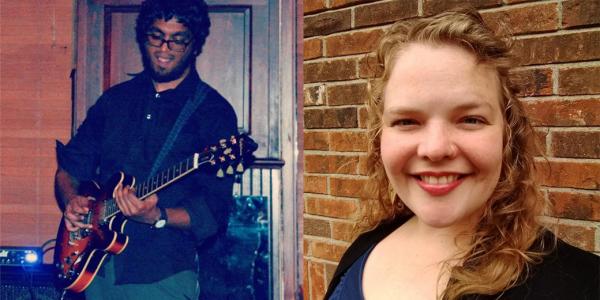Department of Music Lecture: Varun Chandrasekhar & Lisa Pollock Mumme (Graduate Student Conference practice session)
“Things Don’t Get Better, No Things Don’t Get Better Just Different”: Emo Revival as Cruel Optimism
Varun Chandrasekhar, Ph.D. Candidate in Music Theory
In the past ten years, emo music has been “revived” through two cultural forces. First, canonic emo bands like Fall Out Boy began performing as legacy acts. Second, newly-formed emo-revival bands such as Hot Mulligan revitalized the genre by adopting aspects of DIY hardcore music into their work. Ironically, all the bands in the emo revival movement aim to target audiences made up of financially-secure men in their late twenties, even though their music is about adolescence as experienced by children in an overly-corporatized world (Greenwald 2003, 4-5).
This paper seeks to use theoretical analysis to hypothesize why adult, middle-class listeners continue to be affected by songs that explicitly reject their current (stable) financial realities. I read this contradiction through Berlant’s (2011) conception of “cruel optimism.” She describes cruel optimism as a desire that is attainable, but only through means that ultimately disenchant the desiring subject. In regards to emo revival listeners, I argue that their attainable but disenchanting desire is to perform their modern, hegemonic masculinity and that the music affectively displays this complex desire.
Varun's research, building on his history as a guitarist, focuses on the existential condition of the jazz musician. Heeding Sartre's mantra that "existence precedes essence," Varun wonders how starting with the complex, racially marked, urban reality of the jazz musician can guide our understanding of the music. In simpler terms, how does the fact that the jazz musician is thrown into the world influence our musical intuitions, and are these properties then theoretically quantifiable? Prior to coming to WashU, Varun finished a Bachelors in Jazz Performance at The Ohio State University and a Masters in Music Theory at the University of Minnesota studying with Kevin Turner and Sumanth Gopinath.
Open Heart: Pre-Existing Music as the Witch's Voice in The Autopsy of Jane Doe (2016)
Lisa Pollock Mumme, Ph.D. Candidate in Musicology
Witches in twentieth- and twenty-first century American film wield their patriarchy threatening power sonically, usually with their voices. In The Autopsy of Jane Doe (André Øvredal, 2016), Stuart Hamblen's 1954 Christian children's song "Open Up Your Heart (And Let the Sunshine In)" functions as the witch's voice, declaiming her power and identity. In lieu of a voice that appears in the narrative, pre-existing music fills the gap left by the witch's silence.
My close reading of "Open Up Your Heart" in the film emphasizes Jane's revenge on the masculine institutions of religion, reason, and law; and complicates Jane as a character who is simultaneously victim, villain and child. This web of meaning stems primarily from the use of Hamblen's song in the film. By making pre-existing music stand in for the voice, ideas of Jane's power and agency refract through a complex and contradictory collection of signifiers, assembling a density of meaning in a different way than would be possible if the witch spoke, sang, or incanted vocally. This is a particular function of pre-existing music in film, where meaning clots around the uncleanliness of the reading, as Robynn Stilwell demonstrated in her work on Risky Business. "Open Up Your Heart" forms the linchpin of this feminist analysis of pre-existing popular song in horror film about witches, offering a counterexample to the prevalent vocality that marks the witch.
Lisa Pollock Mumme studies gender and sexuality in music. She primarily works on film music, particularly in science fiction and horror genres. Lisa holds an MA in musicology from the University of Iowa. As a PhD candidate at Washington University in St. Louis, Lisa concentrates ongender and sexuality in horror film music. Lisa has published her work on Mexican soprano Ángela Peralta (1845-1883) in The Opera Journal.

